PUBLISHER’S NOTE: Due to the expanse of Larry Shaeffer’s career, we have opted to release this story in three posts. The first segment covers the beginning of his career and his rise to success. The middle and final parts will touch on his ownership of Cain’s Ball Room in Tulsa, promoting concerts, and the growth of Little Wing Productions.
Music Life & The Best Music in Oklahoma
There is a good chance you never met this man or have even heard of his name, but the odds are that this man was probably partly responsible for some great memory in your life. This, of course, is contingent upon you growing up in Oklahoma in the 1970s, 80s, or 90s and liking music, and who doesn’t like music? If you are one of us who have met him, it’s a sure bet that you wouldn’t forget him. Once you meet, it becomes clear how this man from the Keystone Lake area became synonymous with entertainment in Oklahoma.
Rhinestone Revelation
Growing up in rural Oklahoma in the mid-fifties wasn’t precisely a breeding ground for the type of dream that would become Larry’s career. There was, however, one “window to the outside world” back then: television. Music television at that time was in its infancy. Still, it did provide entertainment such as the Lawrence Welk Show, Ed Sullivan Show, and Dick Clark’s American Bandstand. These programs struck a chord in the pre-teen Shaeffer and an interest in music began to cultivate within him.
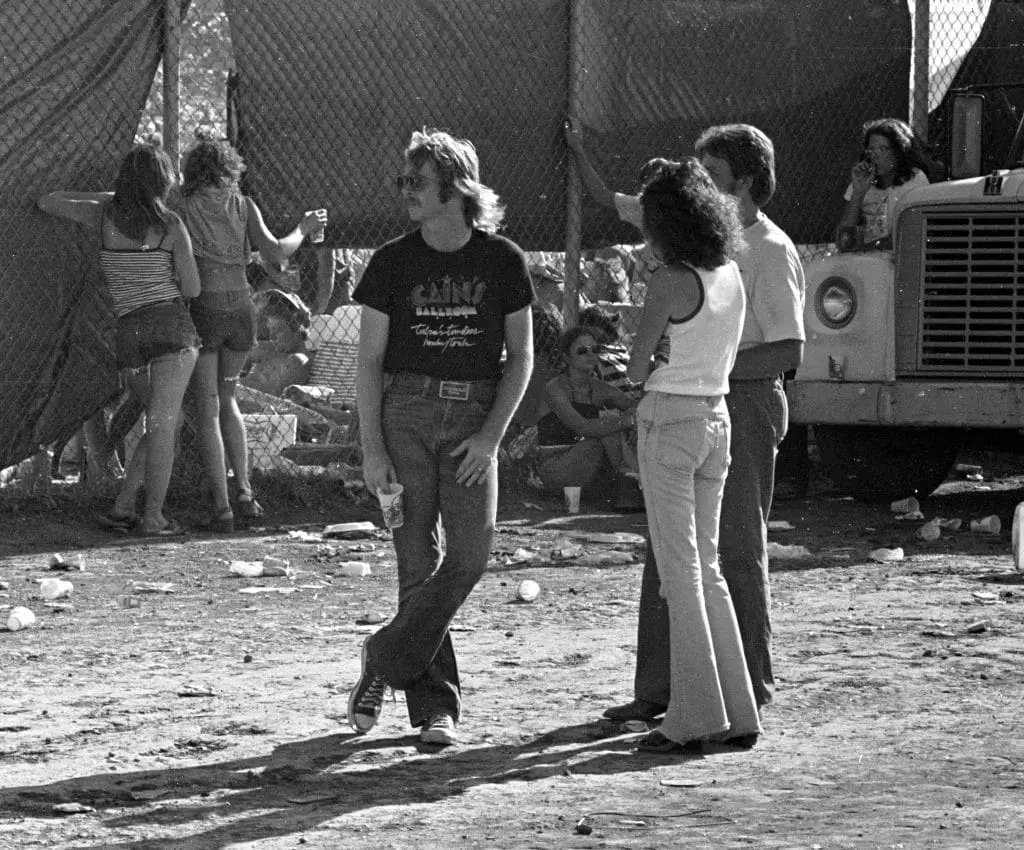
A specific incident on a day trip to downtown Tulsa in 1955 or 56’ would further his desire to gravitate toward the music industry. He and his parents were walking along Denver Avenue one afternoon near what used to be the Cimarron Ball Room.
He saw what he said was “the most unbelievable vision he had ever seen.” At that moment, he was blinded by these beams of sunlight reflecting off the rhinestones from the suit that Leon McAuliffe of Bob Wills & The Texas Playboys band was wearing as he exited the ballroom.
Let’s start from the beginning, shall we?
“I was so zapped by that event that I asked my mom who that man was. She said that was Leon McAuliffe, ‘take it away, Leon.’ McAuliffe was Wills’ steel guitarist, and he was famous for the song Steel Guitar Rag,” which just happened to be a song Larry knew well. Wills would introduce the song with the phrase, “take it away Leon,” which became every bit as popular as the song itself. That moment would always stay with him. Years later, the two men would become friends, and Larry would even acquire McAuliffe’s steel guitar, which he still owns.
This would be the first significant event in Larry’s life to guide him toward the music business. He would eventually take his first active step down this path by acquiring a guitar and taking lessons. The way ahead would be one that would shine on in Oklahoma history as bright as any rhinestones in the sun ever could.
The Day Rock n’ Roll Came To Town.
Everything got rolling for Larry on February 9, 1964, when he witnessed the second event that would further his path along the long and winding road into the music business. That was the night the Beatles played the Ed Sullivan Show.
The following day in the cafeteria at school, he and a few friends agreed that rock n’ roll was the life for them. Their eyes had been opened to an opportunity that had never before seemed natural, let alone attainable. Already playing steel guitar at this time, an art that he quipped he was not very good at, it wouldn’t take long for him to form a band.
“The Beatles’ performance that night is when my intensity for my involvement in the music business started,” he said. He explained that Mannford High School, where he attended, had maybe 40 students in his class. The majority of these kids had an old car or at least access to their parents’ cars and thus had a life if you will. The remaining students, of which group he was in, are what Larry called the “school bus boys… the guys with no girlfriends, future or even reason to live,” he jokingly quips, were the ones most affected by the Beatles’ performance.
“The Beatles’ performance that night is when my intensity for my involvement in the music business started.”
– Larry Shaeffer
Taking The Stage
From that came the creation of their local band, the Undertakers. It was a way to create an identity for these school bus kids and make a few bucks to buy an old Thunderbird, Chevy, or another car to cruise around in. So it wasn’t so much about fame and fortune back then for the wannabe musicians as it was about girls, cars, and a few more dollars than working at a grocery store or gas station could provide.
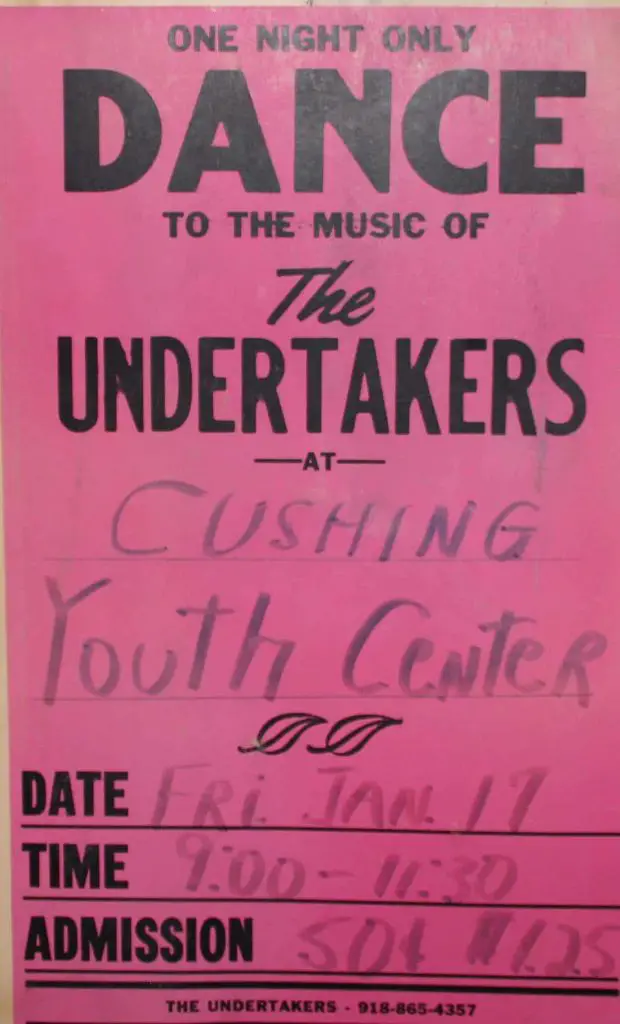
“We were gigging on weekends and going from school bus kids with three dollars in our pockets to having $100-150 on Monday mornings after the shows.” That was a lot of money in the late 60s. He said, “it changed the way we saw life.” Being able to afford cars and perform songs in front of live audiences at sock hops and local functions fanned the flames of desire within these young rockers.
It was just fun and exciting for a bunch of kids to be on stage and get paid for it. Having money to ditch, the school bus probably felt good for these teens.
But for Larry, there was more to it than just playing gigs. He saw an opportunity, the writing of song lyrics on the wall if you will. There could be a real future in music. Since that performance by The Beatles, young musicians began popping up everywhere. This was not a fad that was going to fade away.
Calling Dr. Shaeffer…
Nor was it going to fade to black after he graduated high school, but college, not rock n roll, seemed to be in his future as far as his parents were concerned. They wanted him to go to medical or dental school, so Northeastern State University in Tahlequah, Oklahoma, is where he wound up…for a while anyway. It wouldn’t take long for the 17-year-old Shaeffer to realize that the pre-med classes were of no interest to him. Nor was pulling teeth and treating ear infections.
“Wait a minute,“ he thought. “I don’t want to be a dentist or doctor or sell life insurance. I don’t want to be a school teacher either…I want to be in the music business,” he told himself in the late 1960s. He didn’t even know what the music business was by his own admission, but he knew that whatever it was, he had to be a part of it. However, it would still be a while before he could make his pitch in the music business world.
Unwillingness To Adapt
By mid-December 1970, he had graduated from the University of Tulsa. The day after graduation, he was on a bus headed to the induction center for the US Army, having received his draft notice. Although he was willing to serve his country, in his heart, he knew that he marched to a different drummer than most others.
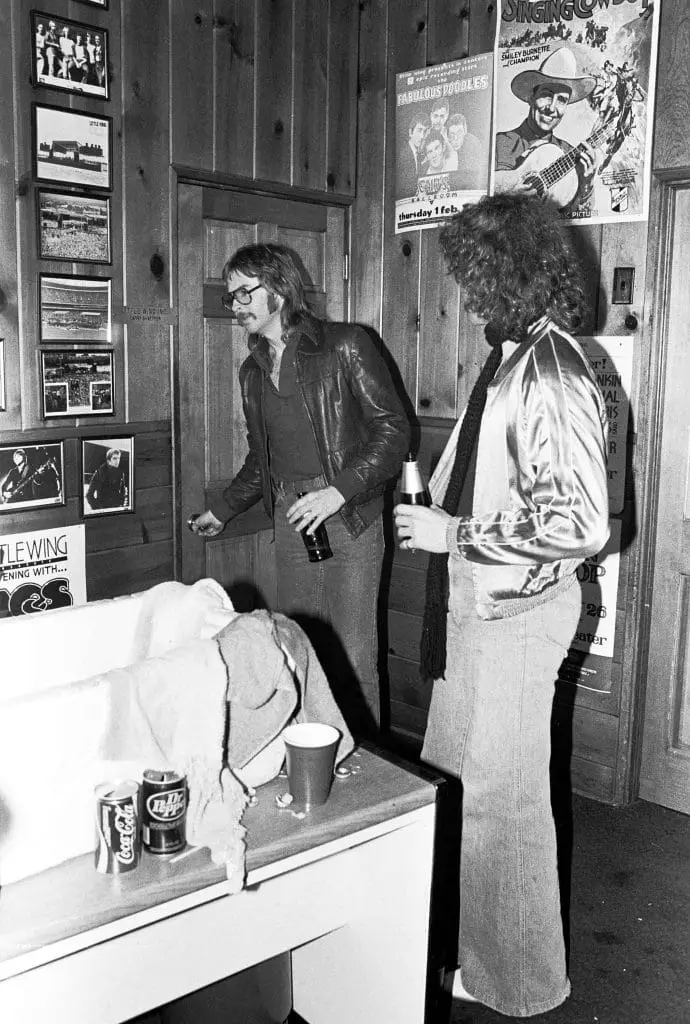
“They wouldn’t run the G@& !^%n army the way I wanted them to,” Larry joked. He and the Army’s problem of not seeing eye to eye soon led to an early honorable discharge for Unwillingness to Adapt to Military Life. (For more of Larry’s opinions and thoughts on the late 1960’s political status, the Vietnam War, and his college degree, tune into the upcoming podcast due soon.)
By June 1971, he was out of the Army, and it was “real-time,” as he called it. He had a college degree which was not worth the paper it was printed on as far as he was… and is still concerned. So with college and the Army behind him, he began hauling hay for a company out of Terlton, Oklahoma, receiving three cents per bale.
It’s Elementary. My Dear Larry
“At this time, I had no idea how I would get into the music business. All I knew was that I was not thinking about hay bales. I didn’t have any desire or hopes that I could be a professional musician either.”
With pressure from his parents and others asking about his future plans, the winds of fate blew an idea his way. An elementary school friend reached out to him after moving back from Texas. His old friend David Miller was now a barber working in Prattville, Oklahoma. He had been a rock n roll singer in Lubbock, Texas, with a band called The Tracers and was interested in keeping a foot on the stage in the music business.
After returning, he had heard that Larry had had the band The Undertakers. Larry’s band would perform until 1969 when the drafting of members and other issues forced them to quit. So with no band, no prospects, and a job baling hay, Larry was eager to hear what David had to say. Miller tells him of a man he had met in Lubbock who had been a friend of the famous musician Buddy Holly. What he told him about this man is what Larry needed to hear…his way into the music business. Miller told him how this man he met had become a local concert promoter and made truckloads of cash.
Long Distance Longing
“That conversation with David was the first sign of the light of me taking some serious direction toward anything musically oriented. We partnered up and decided to promote a show,” Larry said. Larry started calling agents in New York and Los Angeles but was not hearing anything that was music to his ears. The two were using Miller’s barber shop as an office, a shower curtain to separate two of the six barber chairs as an office, and the outside payphone as their business phone.
Not one booking agent would take his call for an entire year. Although frustrated, he kept pumping dimes and quarters into that payphone. Finally, an agent named Bill Elson from Premiere Talent in New York City did take his call. More than that, though, he listened to Larry’s pitch and agreed to take a chance on him.
Although Elson had some of the biggest names of the time on his roster, he found one band to offer him. After that call, both men borrowed some money, had posters printed up, and called themselves concert promoters. Elson had agreed to let Larry bring Black Oak, Arkansas, to Tulsa. And with that came Jim Dandy to the rescue and the birth of Little Wing Productions.
Please check out
Larry Shaeffer’s Legacy Part 2: The Road To Success
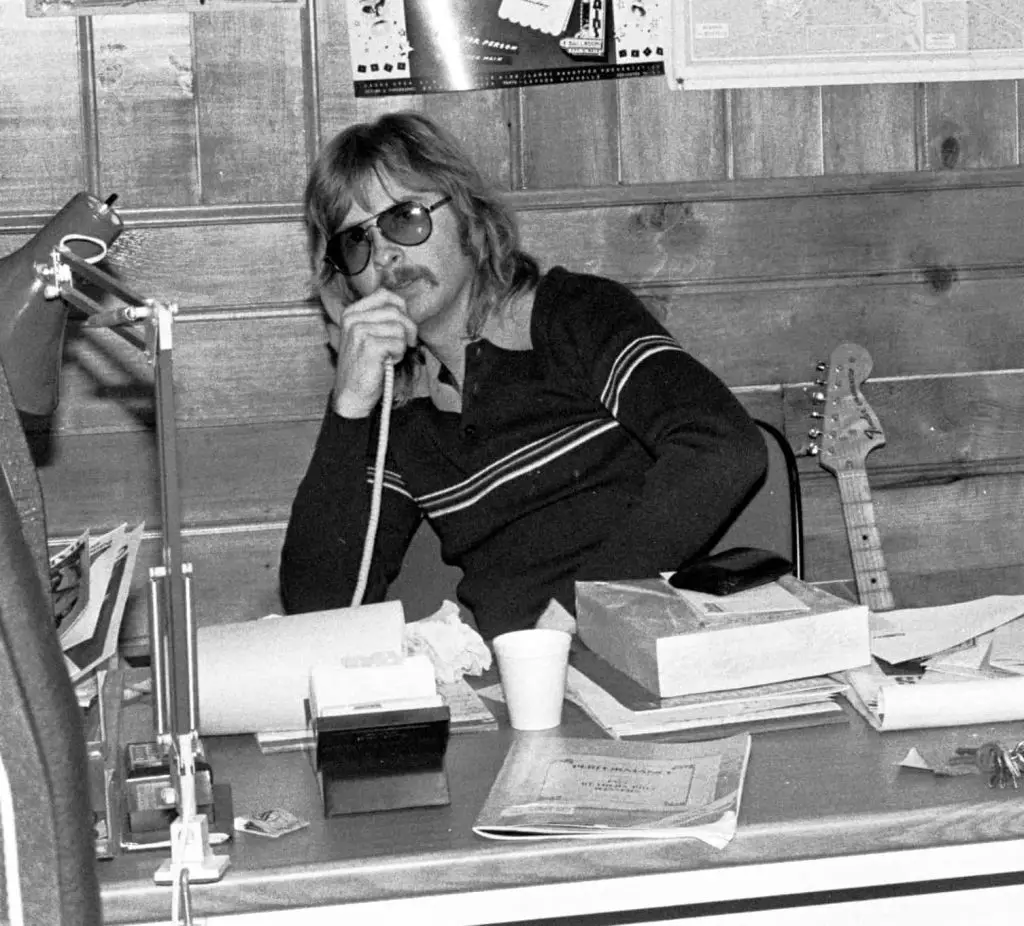

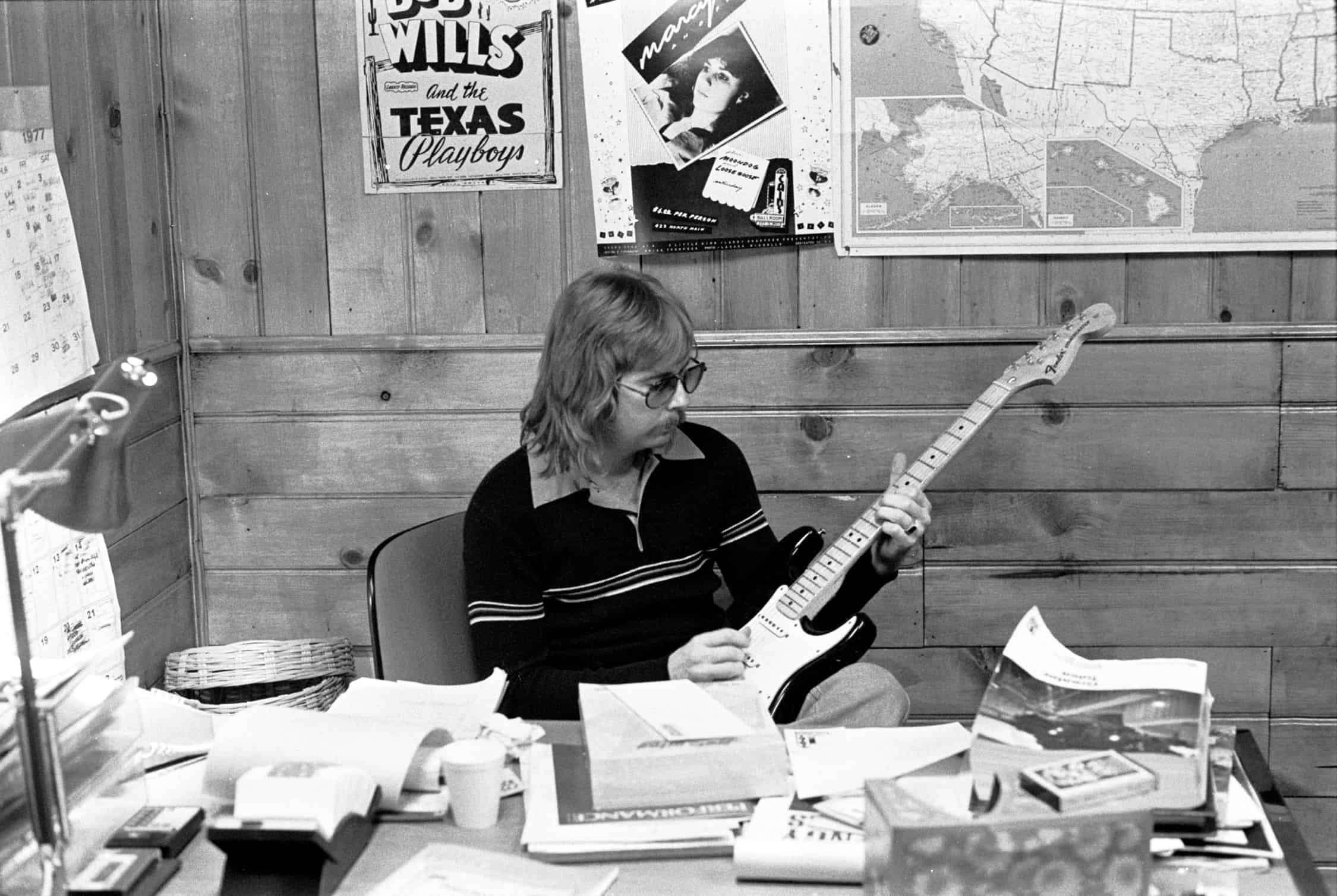


0 Comments